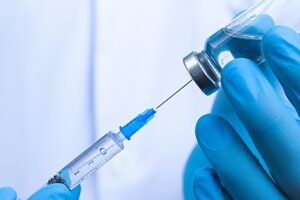The US Food and Drug Administration (FDA) has granted the regenerative medicine advanced therapy (RMAT) designation for Capricor Therapeutics’ investigational cell therapy for the treatment, CAP-1002, to treat Duchenne muscular dystrophy.
Subscribe to our email newsletter
CAP-1002, its lead investigational cell therapy for the treatment of Duchenne muscular dystrophy, the Regenerative Medicine Advanced Therapy (RMAT) designation.
In notifying Capricor, the FDA Office of Tissues and Advanced Therapies, stated that the FDA will “work closely” with Capricor “to provide guidance on the subsequent development of CAP-1002” for the treatment of Duchenne muscular dystrophy, “including providing advice on generating the evidence needed to support approval of the drug in an efficient manner.”
The FDA grants the RMAT designation to regenerative medicine therapies intended to treat a serious condition and for which preliminary clinical evidence indicates a potential to address unmet medical needs for that condition.
The RMAT designation makes therapies eligible for the same actions to expedite the development and review of a marketing application that are available to drugs that receive breakthrough therapy designation – including increased meeting opportunities, early interactions to discuss any potential surrogate or intermediate endpoints and the potential to support accelerated approval.
Capricor president and CEO Dr Linda Marbán said:“The RMAT designation is recognition by the FDA of the potential of CAP-1002 and the importance of bringing this therapy to market to serve the unmet needs of boys and young men who have lost the ability to walk because of Duchenne muscular dystrophy.”
“CAP-1002 is one of the few therapies currently in development to help non-ambulant patients with Duchenne muscular dystrophy, and it’s important that we move forward into the next phase of clinical development to potentially help them maintain what function they have in their arms and hands.”
To receive the RMAT designation, Capricor submitted data from an earlier trial, the HOPE-Duchenne Trial, which reported significant and sustained improvements in skeletal muscle function and cardiac structure in boys and young men in advanced stages of Duchenne muscular dystrophy following a single dose of intracoronary CAP-1002.
Capricor is launching a potential registration trial, the HOPE-2 Trial, to test the potential benefit of CAP-1002 as a multi-dose therapy delivered intravenously.
HOPE-2 is a randomized, double-blind, placebo-controlled clinical trial that is planning to enroll approximately 84 participants in advanced stages of DMD.
Capricor already secured an Orphan Drug Designation for CAP-1002 which gives the company seven-year market exclusivity upon approval. In addition, Capricor has obtained a Rare Pediatric Disease Designation for CAP-1002, which means that if CAP-1002 is approved first for use in Duchenne muscular dystrophy, the company can secure a priority review voucher to fast-track a potential future therapy.
The RMAT designation is expected to further facilitate CAP-1002's path to potential registration. As an initial step in the RMAT process, Capricor intends to submit a meeting request to the FDA for a comprehensive discussion of the CAP-1002 development program for treatment of Duchenne muscular dystrophy and to specifically discuss the HOPE-2 Trial.
 Advertise With UsAdvertise on our extensive network of industry websites and newsletters.
Advertise With UsAdvertise on our extensive network of industry websites and newsletters.
 Get the PBR newsletterSign up to our free email to get all the latest PBR
news.
Get the PBR newsletterSign up to our free email to get all the latest PBR
news.

